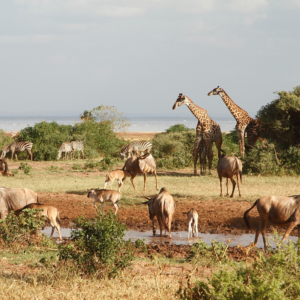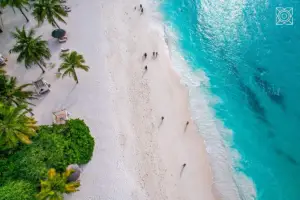Safari Frequently asked questions
Is it safe to go on safari?
Yes, it is! the safety of Kilidove’s clients is our topmost priority. We would never recommend a place that we have not visited before.
Local wildlife is of no risk when following the local wildlife laws and cautions communicated by rangers and guides. Please ensure you follow the advice and rules of national parks, private reserves, and our professional guides – they are the experts who are there to keep you safe.
Is the water safe to drink while on Safari?
In some places, the tap water is safe to drink. In others, the remoteness of safari lodges and tented camps may impact water quality. Always check with the lodge or tented camp whether water is potable (and potable for non-locals). However, our car has a full tank of potable water always available for drinking and refilling the reusable bottles we provide.
What safari vaccinations do I need?
If your safari goes from Tanzania to Kenya you will need a Yellow Fever Certificate to enter into Kenya. A hepatitis A vaccination is recommended for all travelers to Tanzania, Kenya, and Uganda. A typhoid vaccination is recommended for travelers who are planning to visit areas with poor sanitation. A rabies vaccination is recommended for travelers who are planning to spend time outdoors, especially in rural areas. It is also important to take malaria prevention measures when traveling to Tanzania, Kenya, and Uganda.
When you are planning a trip to East Africa, it is important to see a travel health specialist to discuss your vaccination needs.
For more information follow the links below to the country you will be visiting:
Tanzania: https://wwwnc.cdc.gov/travel/destinations/traveler/none/tanzania
Kenya: https://wwwnc.cdc.gov/travel/destinations/traveler/none/kenya
Uganda: https://wwwnc.cdc.gov/travel/destinations/traveler/none/uganda
What documentation is necessary?
This is one of the most important things and must be planned for your trip.
PASSPORT: You must check the expiration date because it must be valid for at least 6 months and have at least 2 blank pages.
VISA: The easiest way to get one is to apply for it online before you travel. Some countries, like Tanzania, still accept visas on arrival. You need one visa if you are traveling to Kenya, Uganda, and Rwanda, but another is needed if you are visiting Tanzania.
Another way is to take it from your country of origin. If so, you will have to contact the Embassy of Kenya and/or Tanzania to learn how to manage it.
For more information about visa requirements, please visit the official Immigration website.
INTERNATIONAL VACCINE CERTIFICATE: You need proof of yellow fever vaccination if you are traveling through a country with yellow fever risk or between any East African country.
Other vaccinations depend on your doctor’s recommendations.
How do I arrange and ensure transfers and pick-ups?
Included in every itinerary, we stipulate and organize all pick-ups and transfers for each stage of your journey. we pre-arrange all transfers.
How much cash should I bring, and what should I tip?
Gratuities in the Tanzanian tourism industry generally follow the North American system.
Tourists are expected to tip their safari staff and staff at most restaurants and hotels. The following information provides a guide to tipping in while on safari. The information is a collection of tipping recommendations from guidebooks and our company’s experience with tipping in Tanzania.
Please remember that all Kilidove staff are paid, and no one relies on tips as a substitute for wages. As with any tipping situation, if you enjoy your experience, give a generous tip; if you do not enjoy your experience, adjust the tip accordingly.
Safari Tipping Guidelines:
- Driver/Guide: US $10 – US $25 per day per guide. Please note that the tip is per guide per day, not per traveler per day.
- Mountain Porters: US $ 5- US $10 per porter per day.
- In Safari lodges, not all patrons tip. Tips are not expected at restaurants and hotels frequented by locals. Most tourist lodges and hotels will have tip boxes at the reception desk. You can tip hotel staff individually, place a tip for all hotel staff in the tip box, or do both. Tips can be in local currency, USD, Euros, or Sterling.
What's A Day On Safari Like
A typical day on safari in African safari is a blend of adventure, breathtaking landscapes, and immersive wildlife experiences. Here’s what you can expect from sunrise to sunset:
Early Morning: The Day Begins
Your safari day usually starts early, before dawn. Around 5:30 to 6:00 AM, you’ll be awakened for a quick coffee or tea, followed by a light snack. Early mornings are the best time for game drives since many animals are most active in the cool hours. As you set off in your safari vehicle, the golden light of the rising sun casts stunning hues over the savannah. If you are joining the balloon safaris, expect to start earlier depending on how far your accommodation is to the launching site.
Morning Game Drive
The morning game drive typically lasts for three to four hours. You’ll explore the vast landscapes, from the rolling plains of the Serengeti to the baobab-dotted terrain of Tarangire. Guides expertly track the wildlife, helping you spot everything from lions stalking their prey to elephants bathing in a waterhole. Each moment is a photographic opportunity, and your guide will share fascinating insights into animal behavior and the ecosystem.
Mid-Morning: Breakfast in the Bush
Around mid-morning, you might enjoy a bush breakfast, surrounded by nature, or return to your lodge or camp for a hearty meal. This is a chance to relax and soak in the serene environment while you refuel for the day.
Late Morning and Midday: Relaxation or Activities
As the sun climbs higher and the heat intensifies, most animals seek shade, and it’s your turn to do the same. During this time, you return to your lodge or tented camp for some downtime. You can take a dip in the pool, enjoy a leisurely lunch, or simply unwind in your room. Some lodges may offer additional activities like guided nature walks or cultural visits to nearby Maasai villages. You may as well extend the game drives, looking for those animals in the shade during the hours of the afternoon.
Afternoon: Second Game Drive
After some rest, you’ll embark on another game drive in the late afternoon, usually around 4:00 PM. The sun’s lower angle creates perfect lighting for photography, and animals like leopards and hyenas become more active again as the temperature cools. You may encounter large herbivores grazing or predators preparing for a night hunt.
Sundowners and Sunset
As the day comes to a close, depending on your location, your guide might take you to a scenic spot to enjoy sundowners—refreshing drinks served as you watch the sun dip below the horizon. This moment is one of the most magical parts of a safari, with the colors of the African sky transitioning from orange to deep purple.
Evening: Dinner and Campfire
Back at the lodge, you’ll be treated to a delicious dinner, often featuring a mix of local and international cuisine. The evening is a time for sharing stories around the campfire under a sky blanketed with stars. If you’re staying in a tented camp, the sounds of the African bush—crickets chirping, distant lion roars—create a captivating atmosphere.
Night: Optional Night Safari or Rest
In some parks like Tarangire, you can opt for a night game drive, offering a unique chance to see nocturnal animals like bush babies, lions, leopards, or even the elusive aardvark. Otherwise, you’ll head to bed, ready to repeat the adventure the next day.
How Much does African safari cost?
The cost of a safari in Tanzania or Kenya can vary greatly depending on factors such as the season, level of luxury, number of days, and specific destinations. Here’s a breakdown of what you can generally expect:
- Budget Safari ($150 – $250 per day):
– These safaris usually involve group tours, basic camping, or budget lodges. You’ll travel in standard vehicles and may have shared facilities.
– Ideal for backpackers or those seeking an authentic experience at a lower cost. - Mid-Range Safari ($400 – $500 per day):
– Accommodations typically include comfortable lodges or tented camps with private facilities. You’ll have better meals, dedicated vehicles, and knowledgeable guides.
– A good balance between comfort and cost, offering a quality safari experience without breaking the bank. - Luxury Safari ($600 – $1,200+ per day):
– High-end lodges or luxury tented camps offer top-notch service, gourmet dining, and extra amenities like private pools. Vehicles are often customized for a more exclusive experience.
– This option is perfect for those looking for an unforgettable, all-inclusive experience with personalized service. - Exclusive or Private Safari ($1,200 – $2,500+ per day):
– Private safaris offer exclusivity, with custom itineraries, private guides, and luxury accommodations. Expect private game drives and access to remote, premium locations.
– Popular for honeymooners or families looking for tailored experiences. - Additional Costs:
– Park Fees: National park entry fees vary but can range from $50 to $100 per person per day.
– Internal Flights: Flying between parks or from the mainland to Zanzibar can add $200 to $500 depending on routes.
– Tipping and Extras: Guides, drivers, and lodge staff often expect tips, adding to the overall budget.
Total Costs:
For a typical 7-day safari, expect:
– **Budget Safari:** $1,050 – $1,750
– **Mid-Range Safari:** $2,100 – $3,500
– **Luxury Safari:** $4,200 – $8,400+
-High-End Safari: $10,000+
These estimates give a general idea, but prices can fluctuate based on the season, specific lodges, and package inclusions.
You can read more about safari prices here.
"Kilidove is a passion, a dream, and a labor of love — a testament to my unwavering dedication to Tanzania and its people."
Find us on
Instagram!






